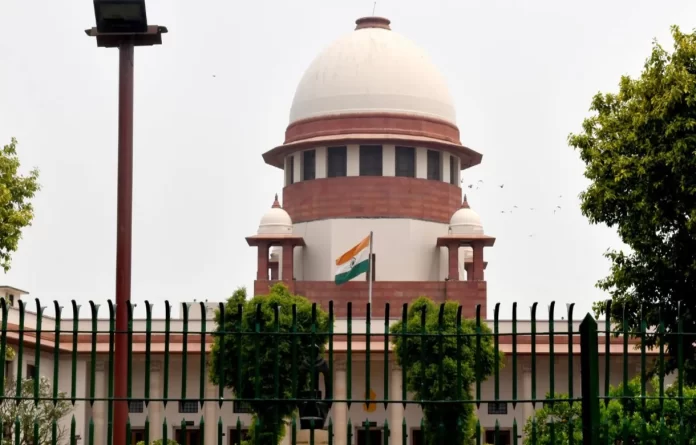The Supreme Court on Monday transferred to itself the pending petition before the Allahabad High Court challenging the validity of the Muslim Personal (Shariat) Application Act, 1937, and seeking a declaration that Section 494 IPC (Punishment for bigamy) is ultra vires to the Constitution of India.
Last year in March, the Allahabad High Court bench of Justice Devendra Kumar Upadhyaya and Justice Subhash Vidyarthi issued a notice to the Attorney General for India while hearing the plea filed by the Hindu Personal Law Board. However, the Centre sought the transfer of this petition to the Supreme Court because identical issues are pending consideration in the Constitution Bench’s case.
During the proceedings on Monday, it was cited that even though the notice was issued, the Hindu Personal Law Board did not enter an appearance. Hence, noting that the issues raised are broadly under consideration before the Constitution Bench, the Supreme Court transferred the instant petition and tagged the matter along with it.
The order stated that it appears that the issues which have been raised in the High Court in the above-mentioned Writ Petition are broadly under consideration before the Constitution Bench in WP No. 202 of 2018. It added that the bench deemed it appropriate to transfer the Writ petition in this Court and tag with WP No. 202 of 2018.
Notably, a batch of petitions challenging the constitutional validity of polygamy and Nikah Halala, which is allowed by Muslim personal law, is pending before the Constitution Bench of the Supreme Court. Earlier in 2018, the bench led by then Chief Justice of India Deepak Misra referred these petitions to a 5-judge bench.
The aforesaid petition has assailed the Muslim Personal Law (Shariat) Application Act 1937 on the ground that it permits Muslims to perform polygamy. Nonetheless, the polygamy culture was followed by Hindus, including Buddhists, Jains, and Sikhs, but it is now prohibited by law.


